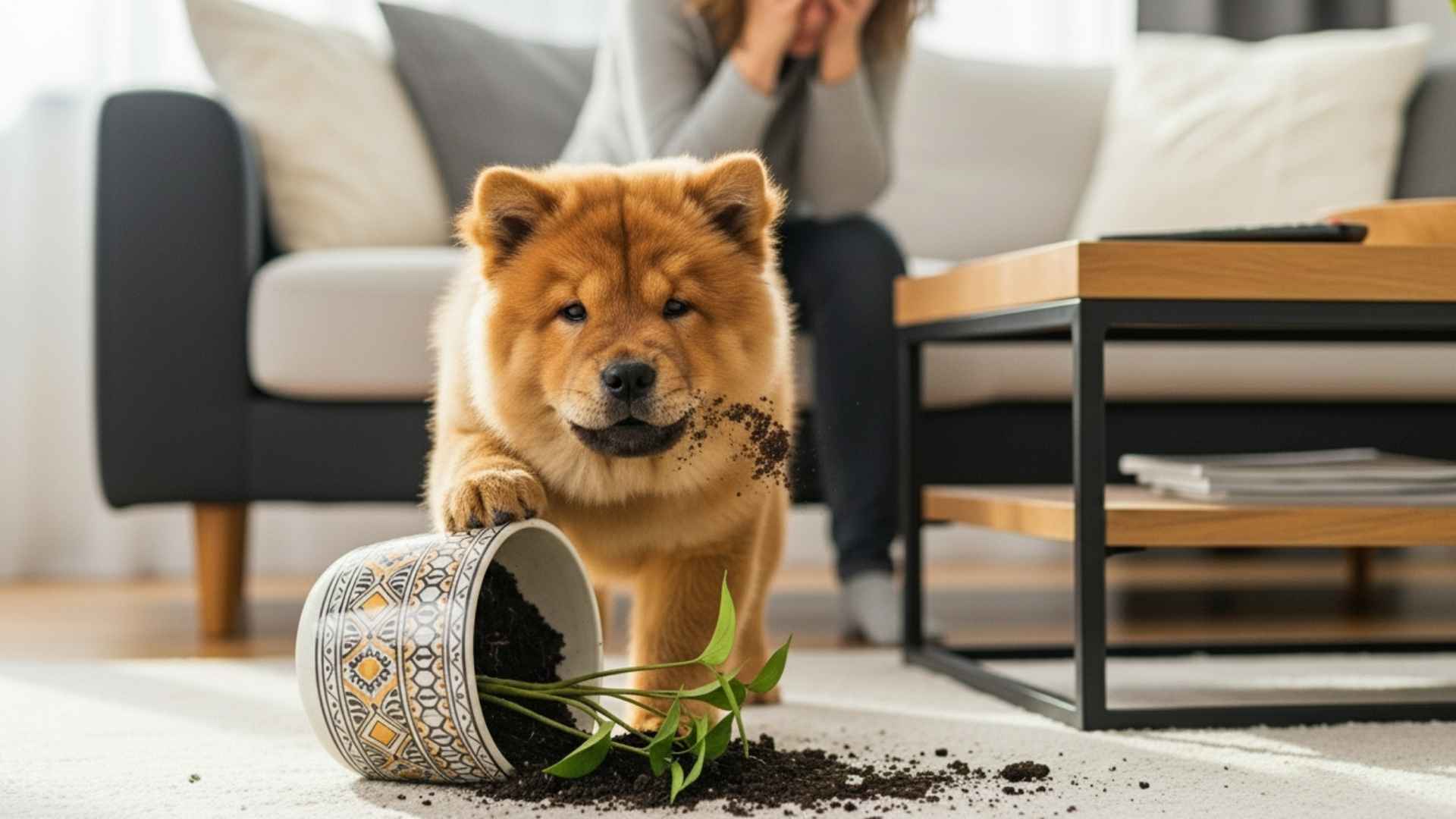Bringing a dog into your life for the first time is exhilarating—but not all breeds are suited for beginner hands. Some dogs are high-energy, stubborn, or require specialized care and training that can overwhelm first-time owners.
While every dog deserves love, certain breeds demand experience, patience, and commitment that newcomers might struggle to provide. Imagine welcoming a hyperactive, intelligent, or strong-willed pup into a home unprepared for its needs—it can quickly turn a dream into a challenge.
Knowing which breeds to avoid doesn’t mean giving up on companionship; it means choosing a dog that fits your lifestyle, energy, and experience level. From independent thinkers to dogs with intense exercise requirements, understanding these potential pitfalls is key to a harmonious first-time experience.
We’ll explore dog breeds that might test your patience, offer tips on what makes them challenging, and help you make a confident, informed choice. After all, the right dog for a beginner is not just about love—it’s about a happy, lasting partnership.
Pet Owner Tip: Before adopting a dog, research their physical traits, personality, dietary needs, and grooming requirements. Don’t forget to consider how much mental stimulation and training they’ll need to stay happy and well-behaved.
Dog Breeds To Avoid For First-Time Owners
1. Akita
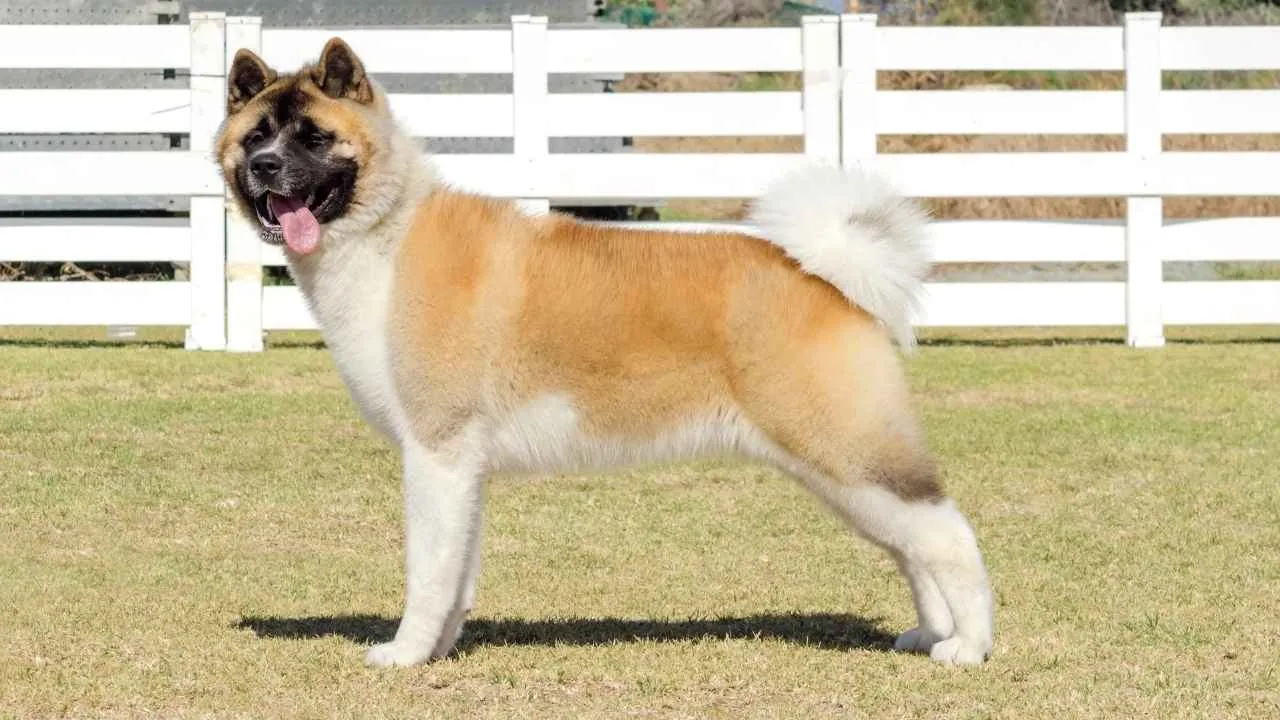
If dog breeds came with warning labels, the Akita’s would probably read: “Handle with confidence (and a firm voice).” These stunning, bear-like dogs from Japan are as loyal as they come—but they’re also famously strong-willed, independent, and not exactly eager to please.
Originally bred to guard royalty and hunt large game, the Akita has a commanding presence and a heart full of devotion for their family. But for strangers? Let’s just say they’re not rolling out the welcome mat.
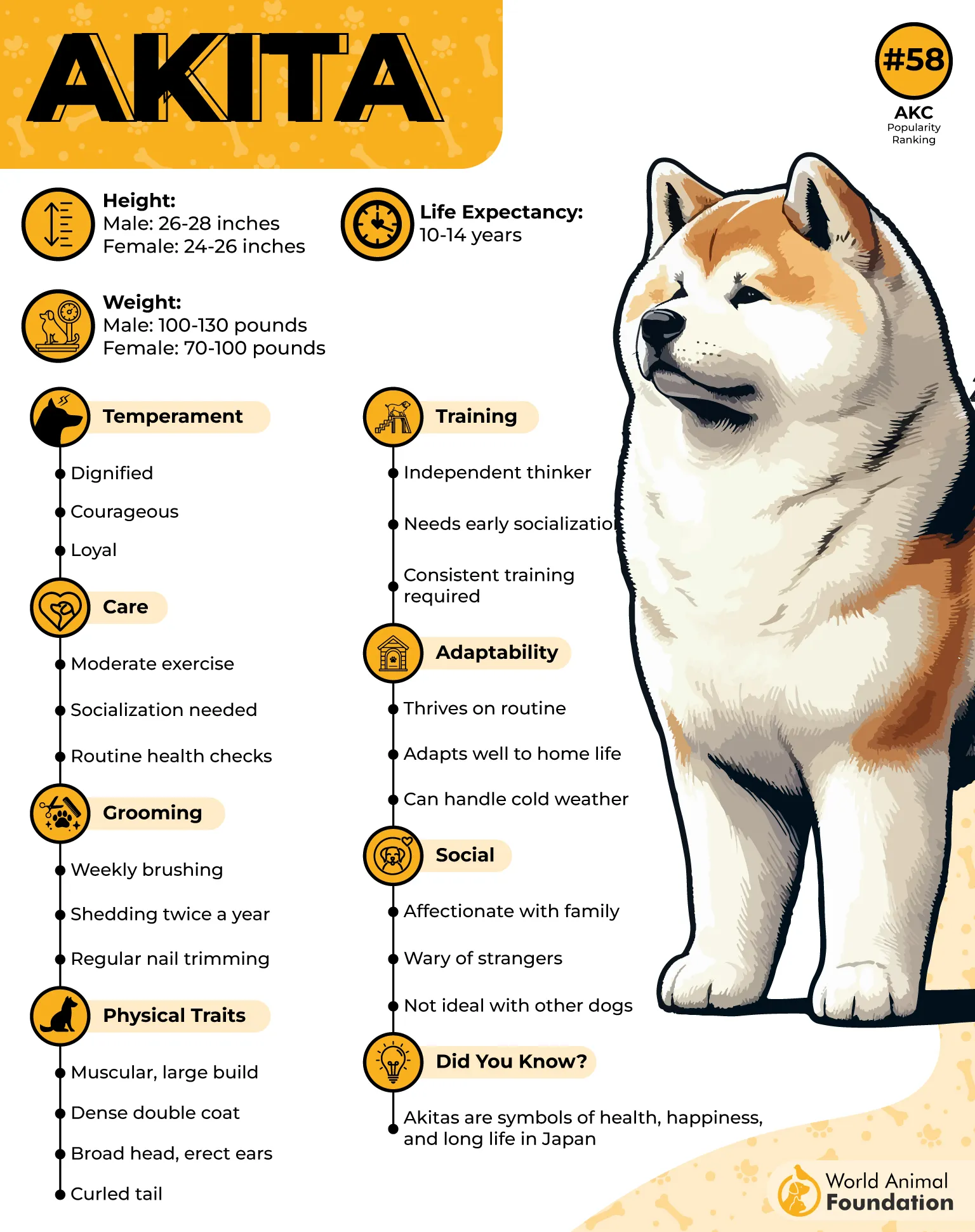
They’re the ultimate “silent protector”—observant, calm, and serious about their job. But training them? That’s another story. The Akita doesn’t just follow orders—they evaluate them first, like a boss deciding if your idea is worth their time.
Here’s what to expect if you’re thinking of bringing home this royal guardian:
Natural guardian instincts: Wary of strangers, highly protective of family.
Low tolerance for nonsense: Not ideal for households with rowdy pets or undisciplined kids.
Grooming alert: That gorgeous double coat will shed—a lot.
PetMD noted Akitas thrive under strong, experienced leadership and early socialization, but they can overwhelm first-time owners who aren’t used to handling dominant breeds.
Bottom line: The Akita is like having a stoic samurai as a roommate—noble, protective, and extremely loyal. But if you’re new to dog parenting, this isn’t your typical “sit, stay, fetch” companion.
Think of them as the advanced course in canine companionship—challenging, but truly rewarding for those ready to earn their respect.
2. Alaskan Malamute
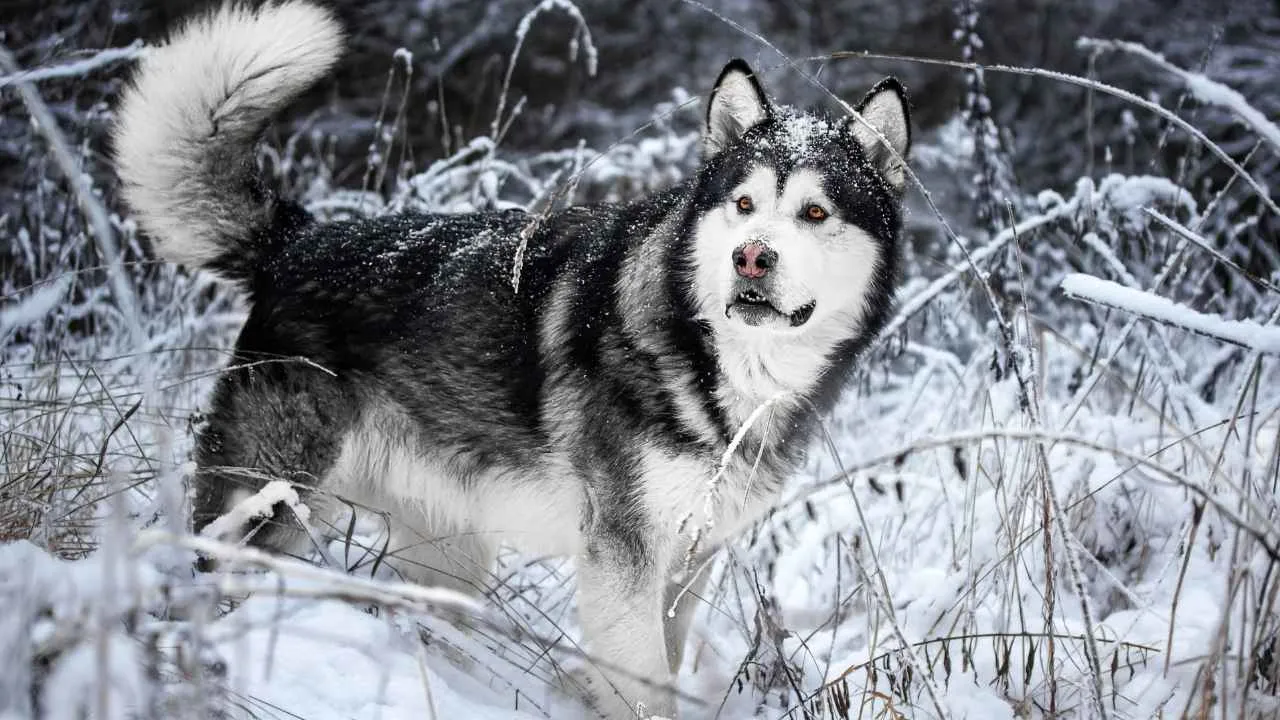
If the Alaskan Malamute were a person, it’d be that adventurous friend who insists on taking the long route just to see what’s out there. These majestic, wolf-like dogs are built for endurance and exploration—which sounds great, until you realize they think “recall” means “optional suggestion.”
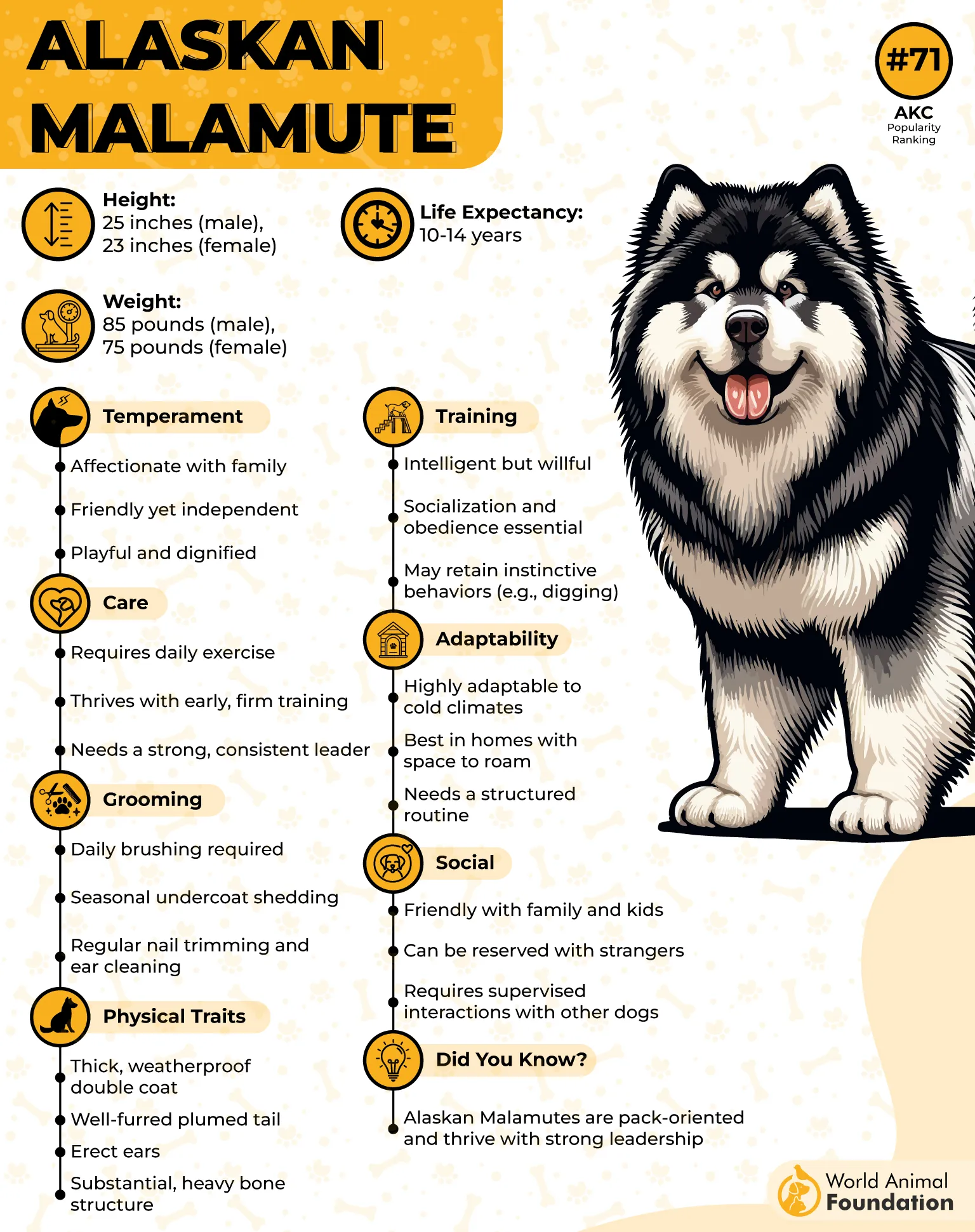
Originally bred to haul heavy sleds across the Arctic, Malamutes are powerful, determined, and full of wanderlust.
But for first-time dog owners? They can be… a lot. Between their love of pulling (on everything), stubborn streak, and high energy levels, they’ll test your patience—and your upper body strength, as per Britannica.
Escape artists: If there’s a weak spot in your fence, they’ll find it—and dig under it.
Not great with small pets: That high prey drive runs deep.
Can be dog-selective: Same-sex squabbles are common.
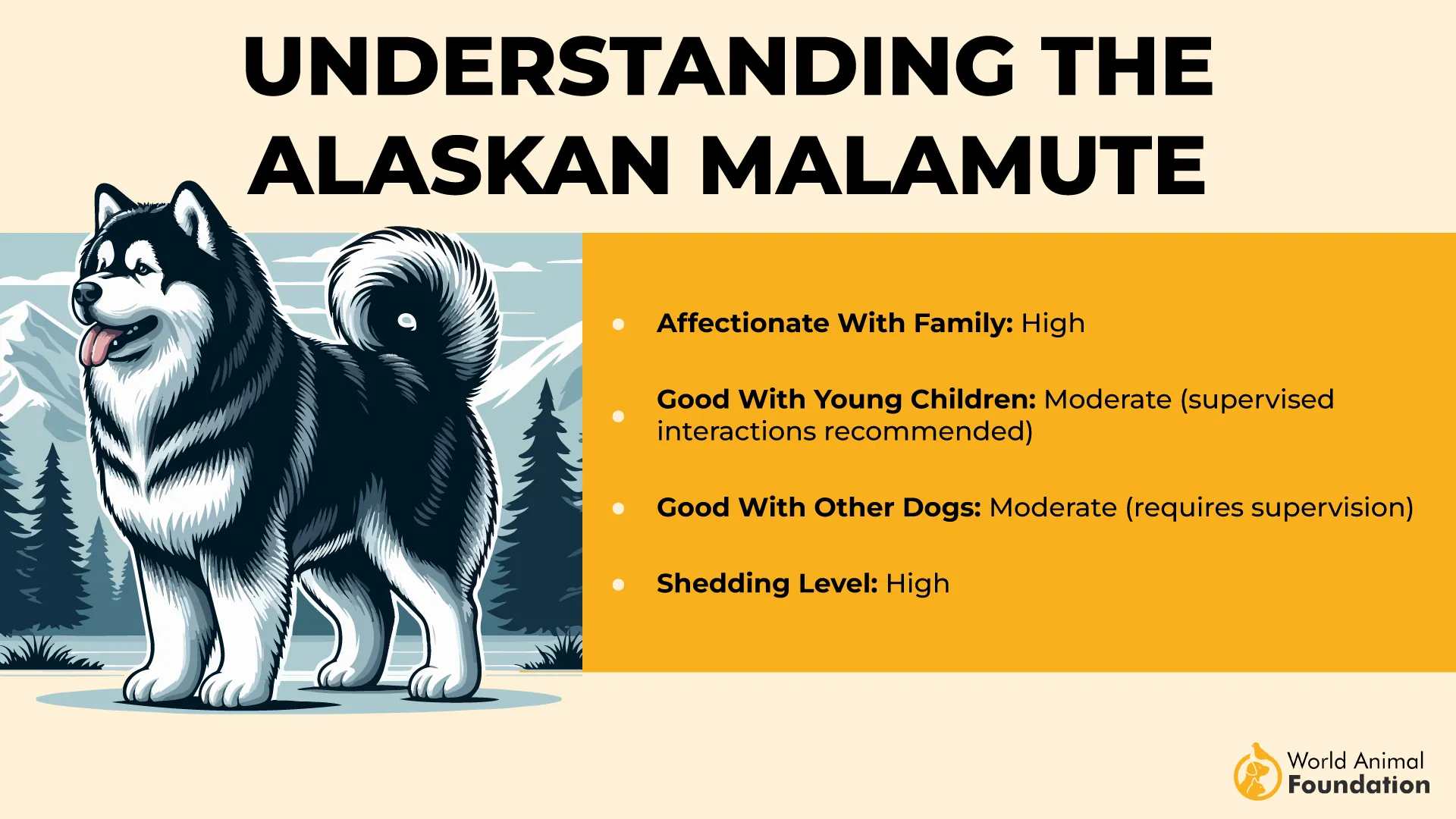
They’re affectionate, loyal, and absolutely stunning—but the Malamute thrives best with an experienced owner who knows how to channel all that energy and independence into productive outlets.
Bottom line: Alaskan Malamutes are the free spirits of the dog world—majestic, mischievous, and made for adventure. But for a first-time dog parent? They might feel less like a pet and more like a furry force of nature who’s always one step ahead (and halfway out the door).
3. Rottweiler
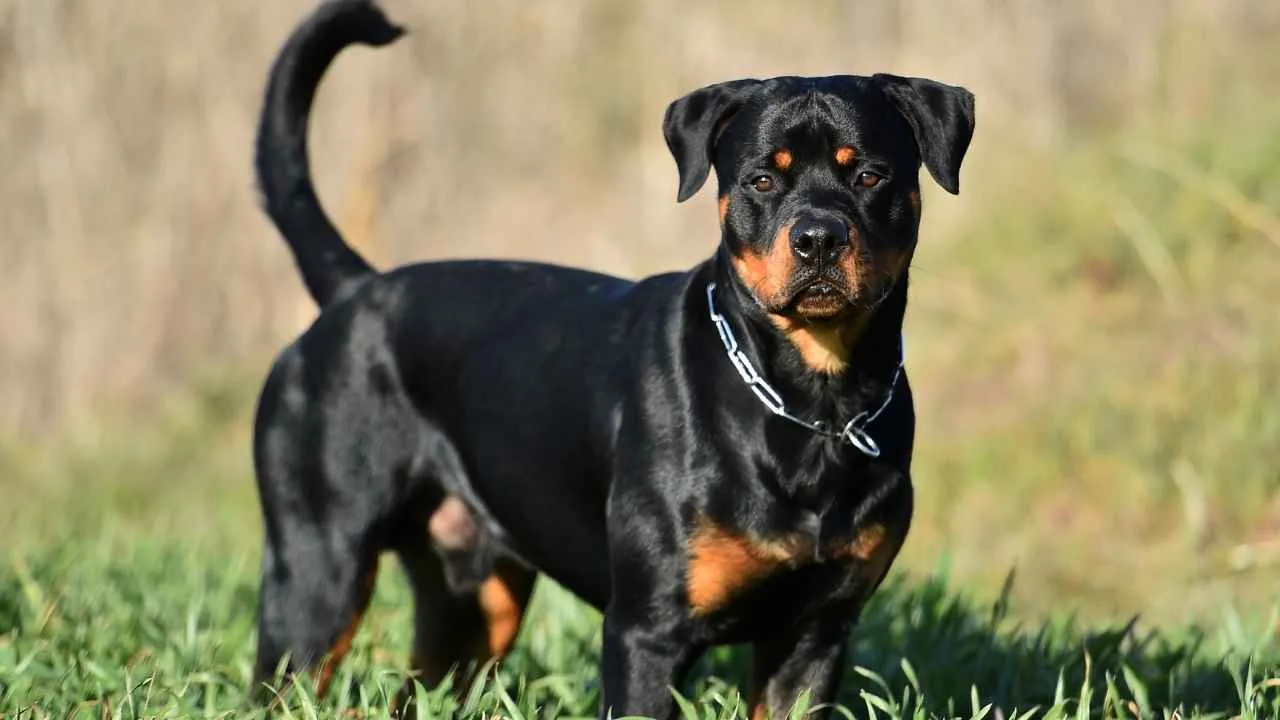
Ah, the Rottweiler — the strong, stoic, and secretly snuggly bodyguard of the dog world. With a heritage that traces back to Roman drover dogs, these muscular canines were bred to herd cattle and guard property, and that naturally protective streak still runs deep today.
While they’re loyal and loving with their families, Rottweilers can be a handful dog breed for first-time dog owners who underestimate their power and intensity.
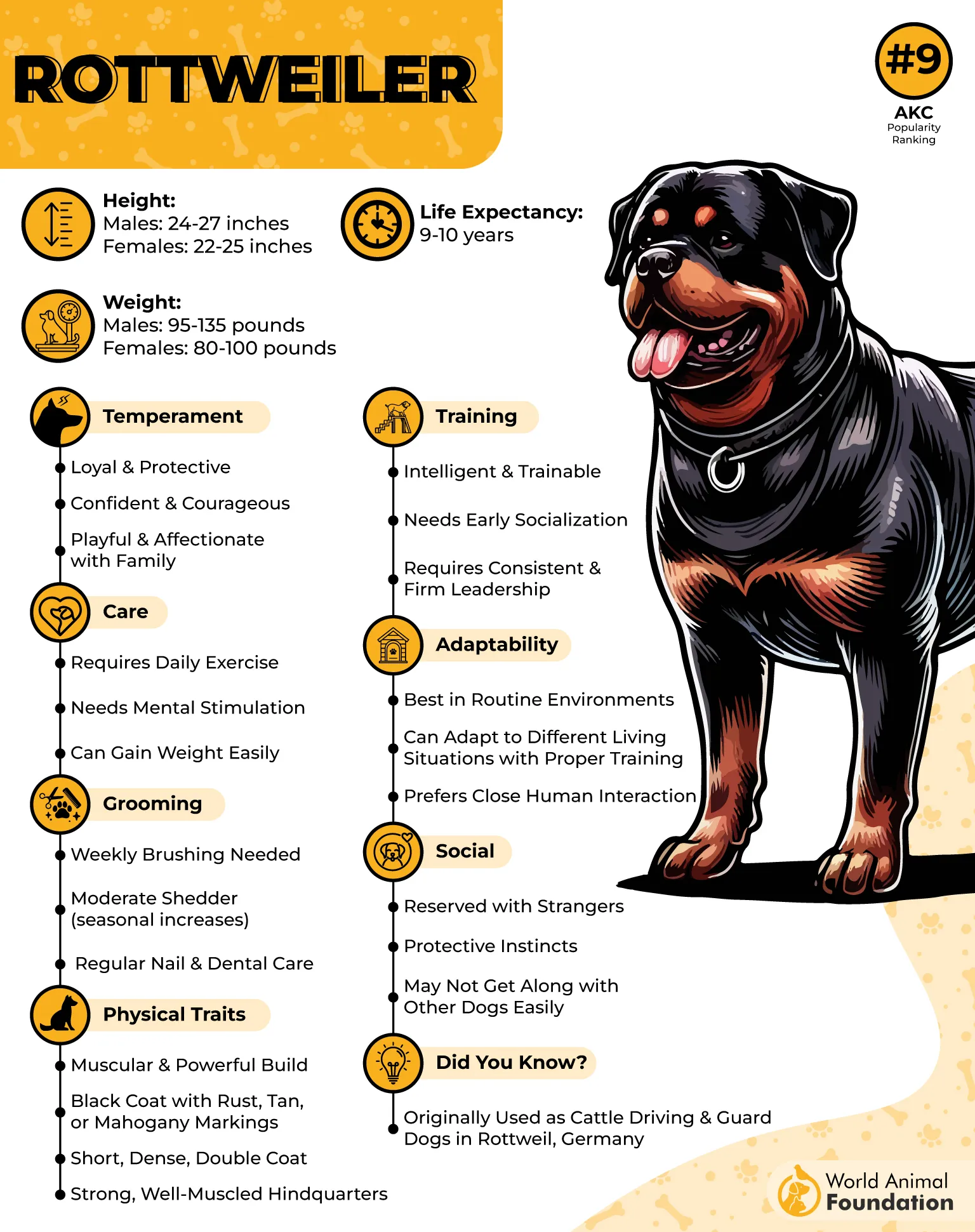
This isn’t your average lapdog (though, to be fair, Rotties often think they are). These herding dogs need structure, consistency, and a confident leader who can earn their respect—not someone who gives in to those big brown “please don’t make me sit” eyes.
Strong and stubborn: They’re like that gym buddy who refuses to skip leg day… or any day.
Need proper obedience training: Without it, you might end up with 100+ pounds of pure muscle calling the shots.
Affectionate at heart: They adore their family (and will probably try to sit on your lap just to prove it).
Rottweilers can be incredible family members when raised with early socialization, consistent rules, and firm but loving guidance. They’re great with kids when properly trained and can be gentle giants at home—but they require experience, patience, and confidence to bring out their best.
Bottom line: The Rottweiler is like a luxury sports car—powerful, sleek, and thrilling to have, but not the best choice for a beginner driver. In the right hands, though? They’re loyal protectors and big-hearted goofballs who’ll guard your home—and your heart—with equal devotion.
4. Doberman Pinscher
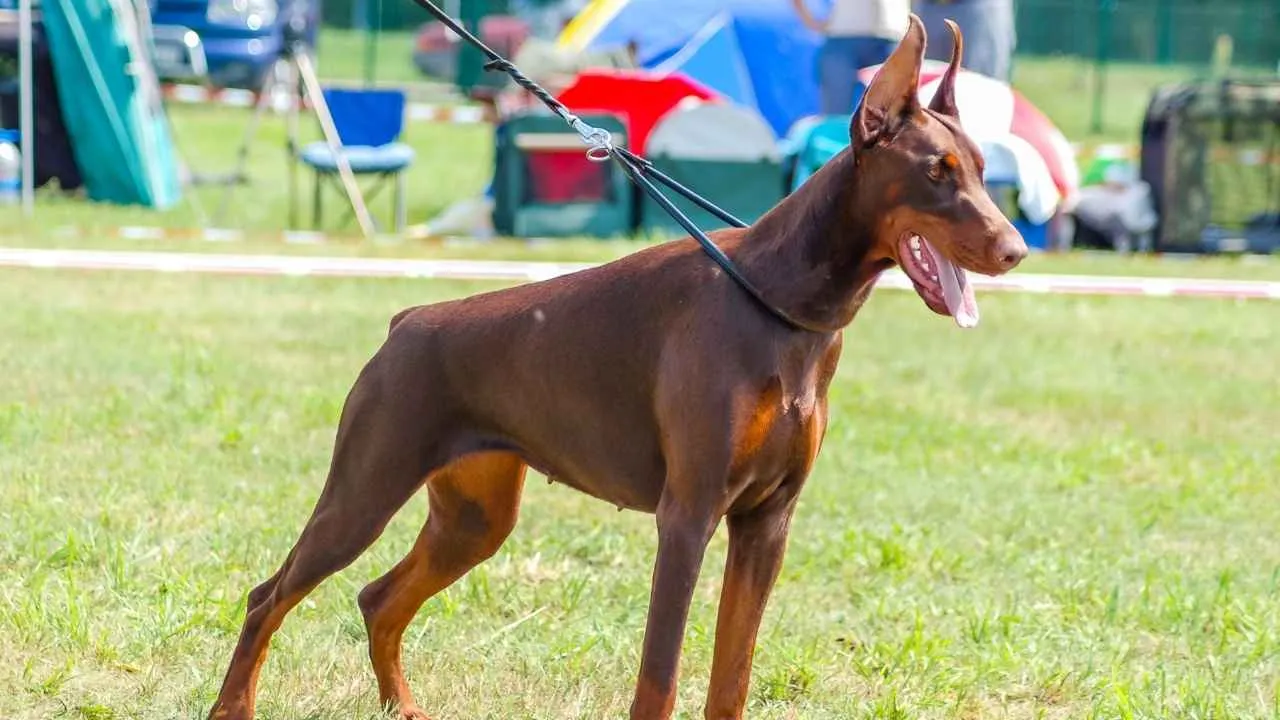
Sleek, smart, and built like a canine superhero, the Doberman Pinscher is the kind of dog that turns heads wherever it goes.
Originally developed in Germany as a protection dog, this athletic breed thrives on purpose, structure, and a good daily workout. Think of them as the “personal trainers” of the dog world—these guard dogs will keep you on your toes, whether you like it or not.
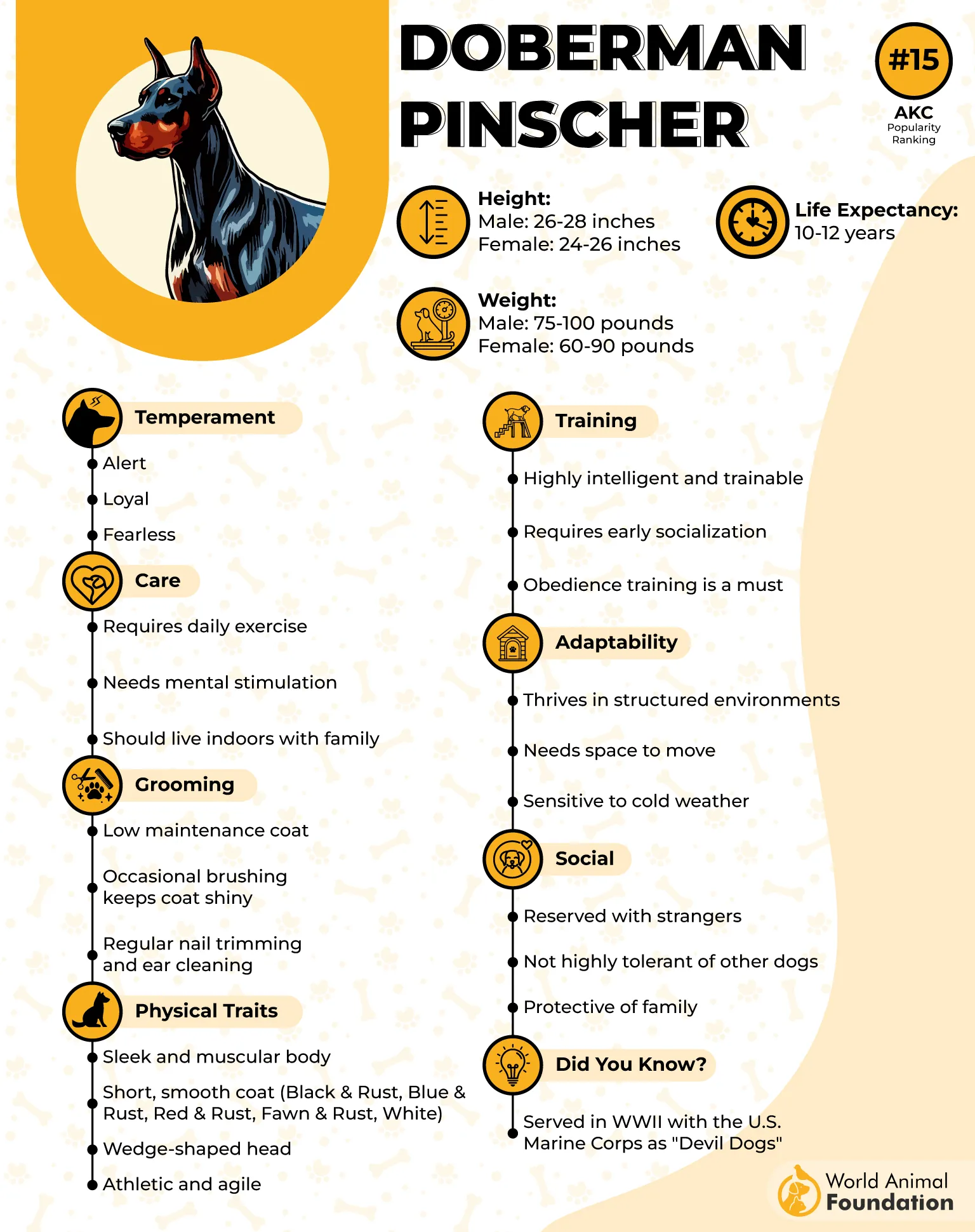
Dobermans are brilliant and eager to learn, which sounds perfect—until you realize that a clever dog with too much time on its paws can also be a master of mischief.
Super smart: Quick learners—but also quick to outsmart inexperienced owners.
Protective instincts: Great watchdogs, but need proper socialization to stay well-balanced.
Separation anxiety prone: They bond deeply with their humans, making long alone time a big no-no.
If their body and brain aren’t kept busy, they’ll happily invent their own activities… and you may not love their creative choices (say goodbye to your favorite shoes).
While Dobermans can be incredibly loyal, affectionate, and eager to please, they aren’t the “easy button” of dog ownership. First-time owners might find their energy level and intelligence a bit overwhelming.
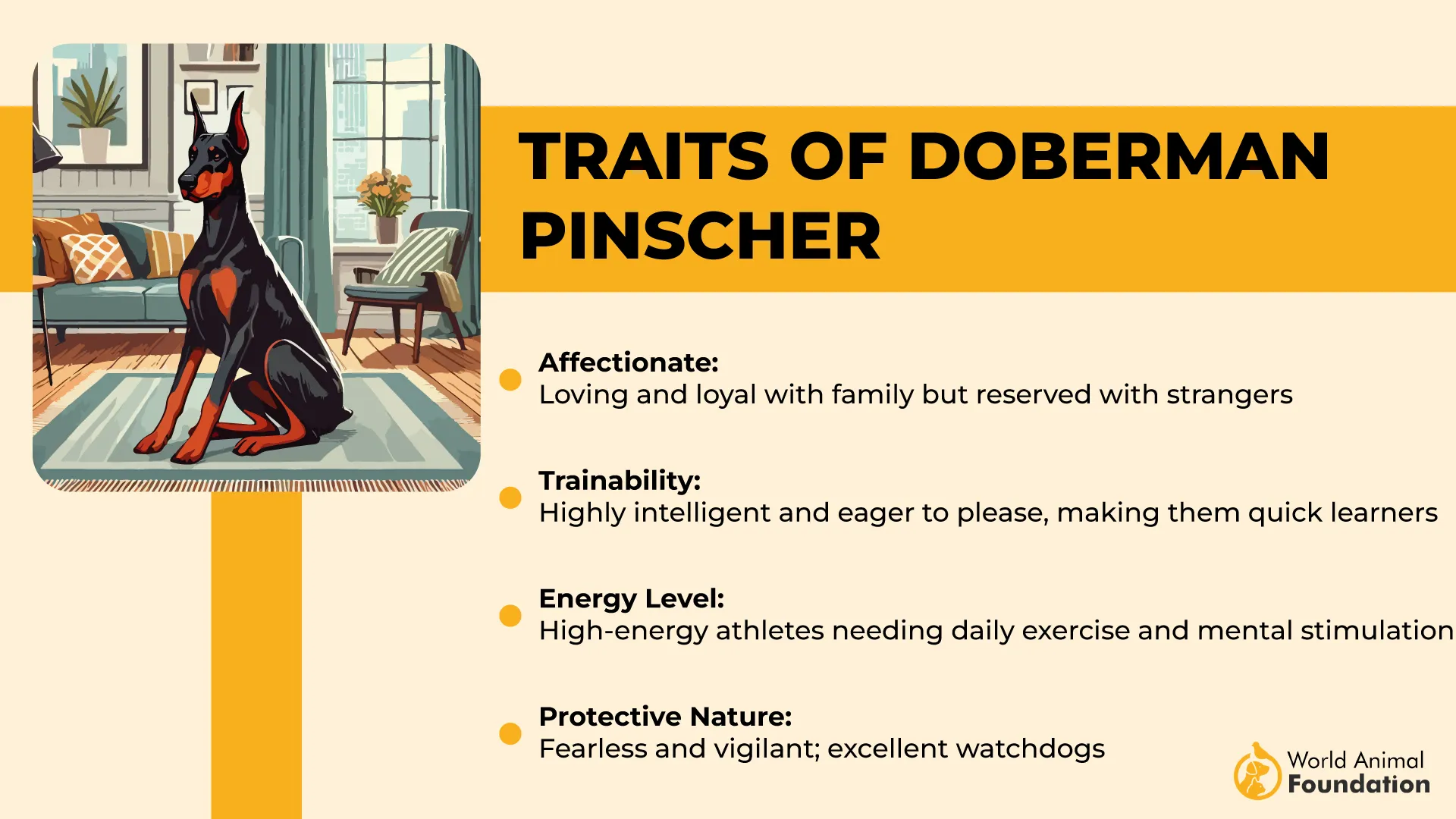
Bottom line: A Doberman Pinscher is like having a loyal bodyguard and a personal trainer rolled into one—but if you don’t keep up, they’ll run the show. With the right owner, though, they’re one of the most devoted and impressive companions out there.
5. Chow Chow
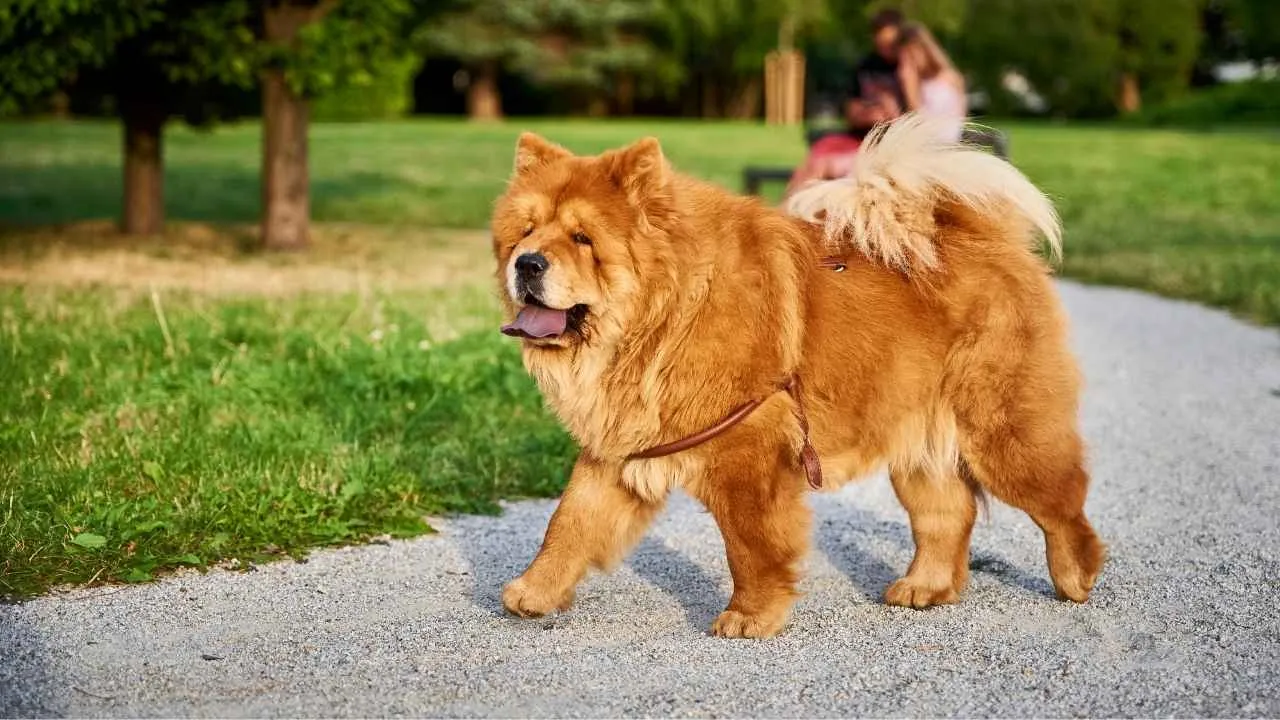
Don’t let that fluffy teddy bear face fool you—the Chow Chow is more of a regal lion than a cuddly lap dog. With their thick mane, stoic expression, and “I rule this household” attitude, these ancient Chinese dogs come with a whole lot of personality (and fur).
They’re beautiful, dignified, and incredibly loyal… once they decide you’re worthy of their affection. But here’s the catch: Chows don’t hand out loyalty for free.
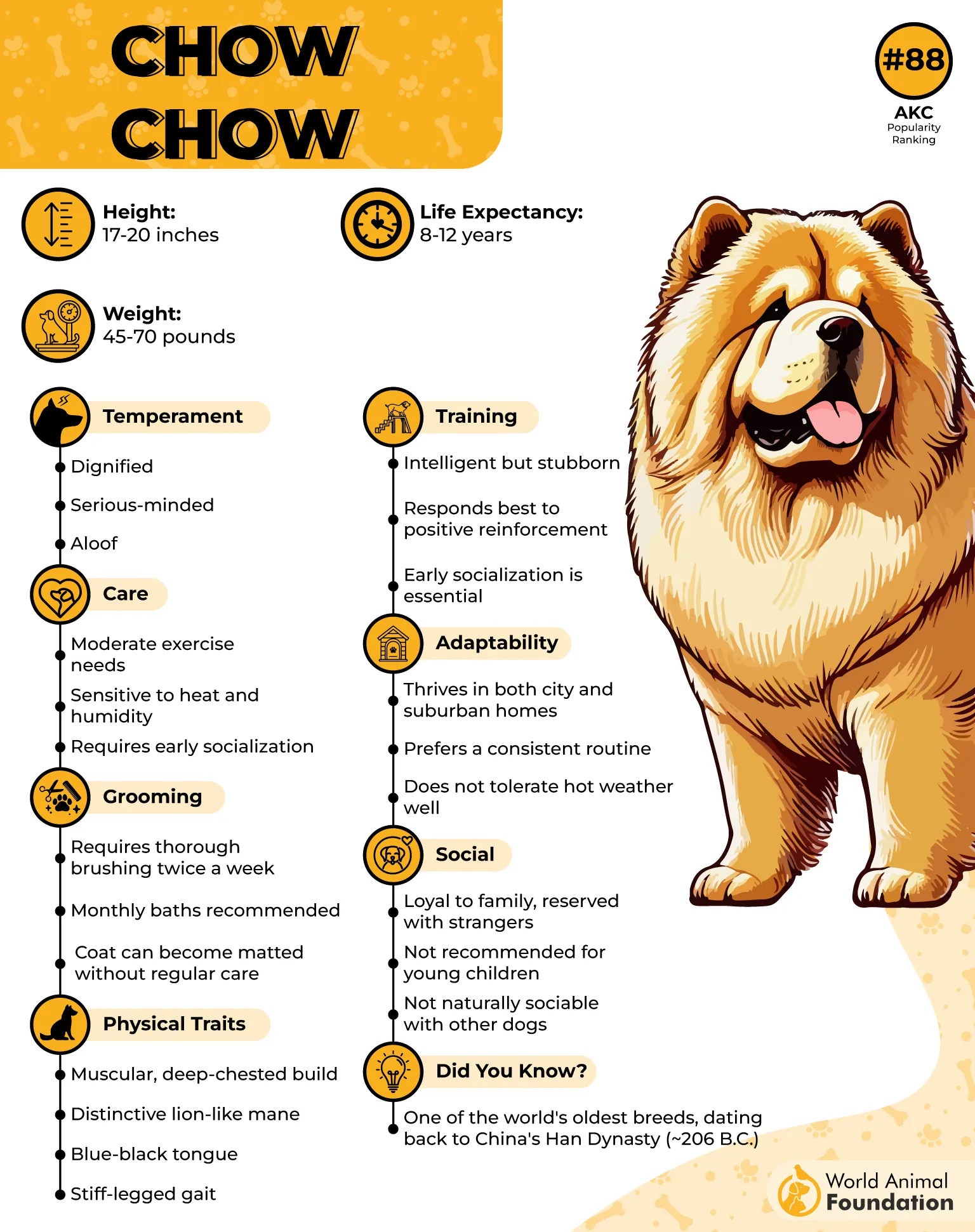
They’re independent thinkers with a stubborn streak that would make even the most patient trainer break a sweat. First-time owners might find themselves negotiating with their Chow like a toddler who’s just discovered the word “no.”
Cool and aloof: Not big on cuddles—personal space is their love language.
Territorial instincts: Can be protective to the point of aggression if not socialized early.
Strong-willed: Training requires experience, consistency, and loads of patience.
While their plush coats and noble demeanor scream “royalty,” owning a Chow Chow is no fairytale for beginners. Without early socialization and firm leadership, this breed can become bossy and distant.
Bottom line: The Chow Chow is a stunning, powerful, and proud companion—but not one for the faint of heart. Think of them less as a snuggly sidekick and more as a majestic roommate who occasionally graces you with affection… when they’re in the mood.
6. Cane Corso
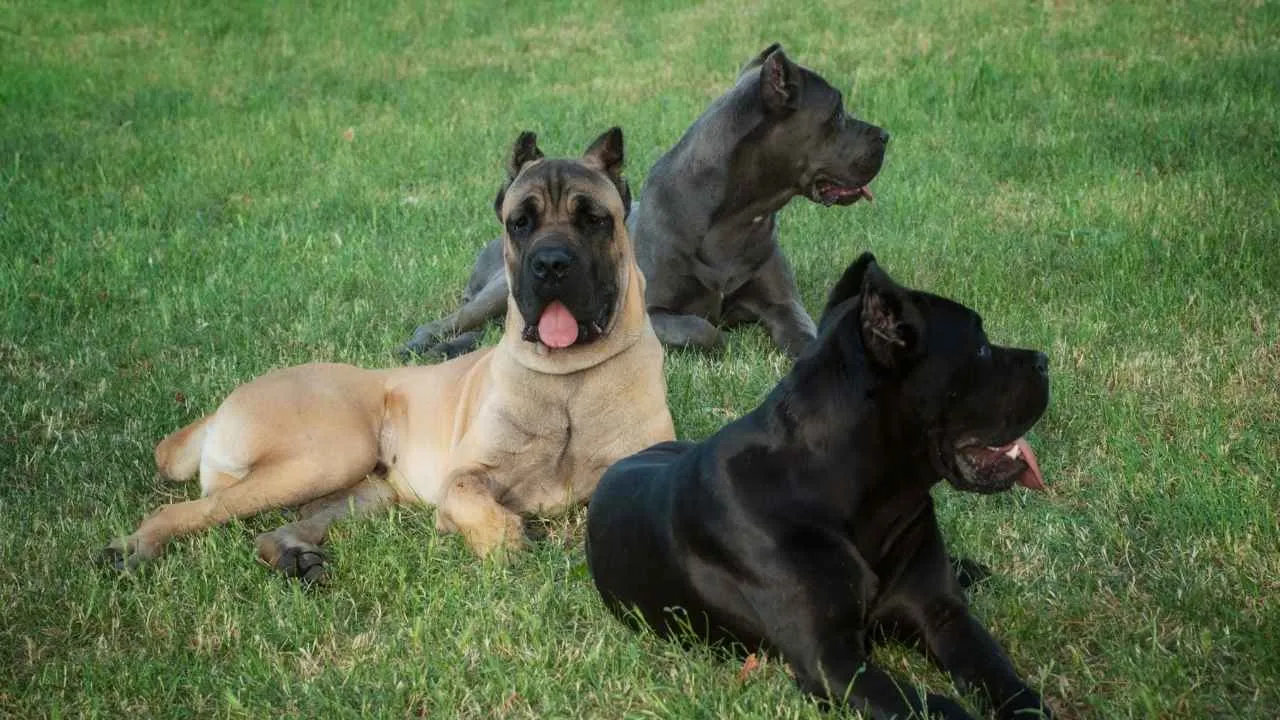
The Cane Corso may look like the ultimate dream dog—majestic, muscular, and loyal to a fault—but make no mistake, this Italian powerhouse is not for the faint of heart (or arm strength).
Descended from Roman war dogs, this breed carries centuries of guarding instinct, raw power, and unshakable confidence in every muscle.
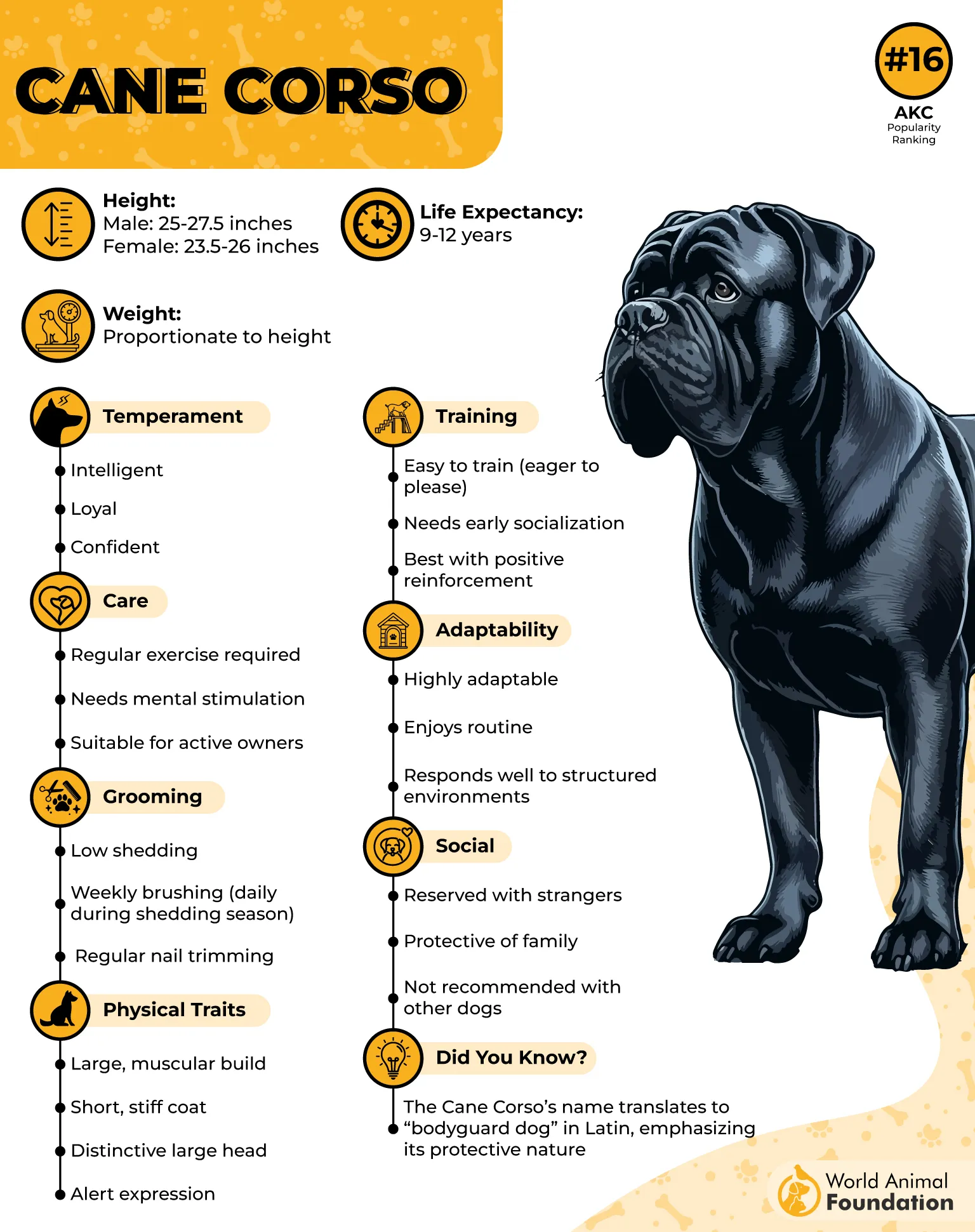
With their commanding presence and unwavering devotion, Cane Corsos are born protectors. But that same protective streak can quickly turn into a full-time job for an inexperienced owner. They need a confident, knowledgeable handler who can establish leadership early on—because if you don’t, they will.
Highly intelligent: Quick learners, but only if they respect you as the boss.
Strong-willed: Requires firm, consistent training and early socialization.
Not for beginners: Their size and power can be overwhelming without experience.
While a well-trained Cane Corso can be an incredible guardian and family companion, neglecting their training or underestimating their strength can lead to serious challenges. They thrive on structure, mental stimulation, and clear boundaries—not cuddly chaos.
Bottom line: Think of the Cane Corso as a luxury sports car—powerful, elegant, and commanding. But without the proper experience and control? It can spin out fast. For seasoned dog owners, though, there’s no greater guardian or more loyal best friend.
7. Siberian Husky
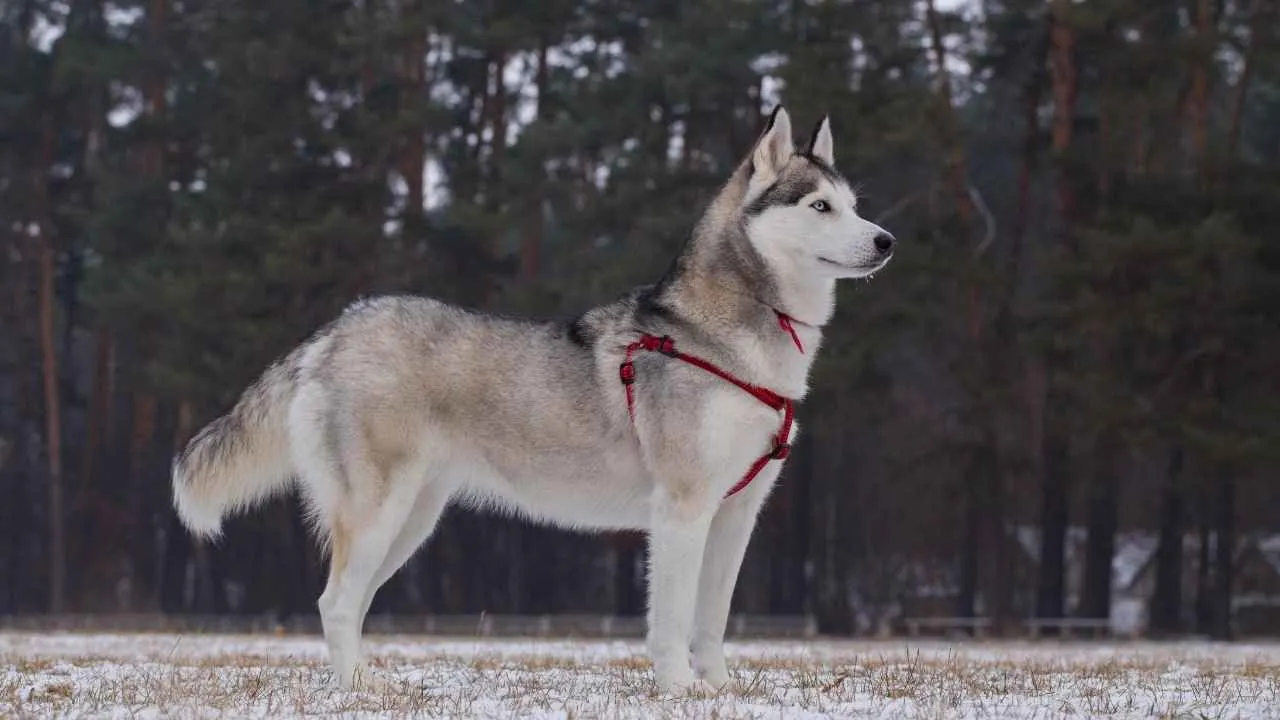
Ah, the Siberian Husky — the dog that looks like it just walked off a snow-covered mountain straight into a shampoo commercial. With their icy blue eyes, wolf-like grace, and endless charm, it’s easy to fall in love.
But behind that majestic fluff is a mischievous escape artist who thinks your house rules are merely… suggestions. Originally bred to pull sleds across the frozen tundra, Huskies are built for endurance, speed, and teamwork — not lounging on the couch while you binge-watch Netflix.
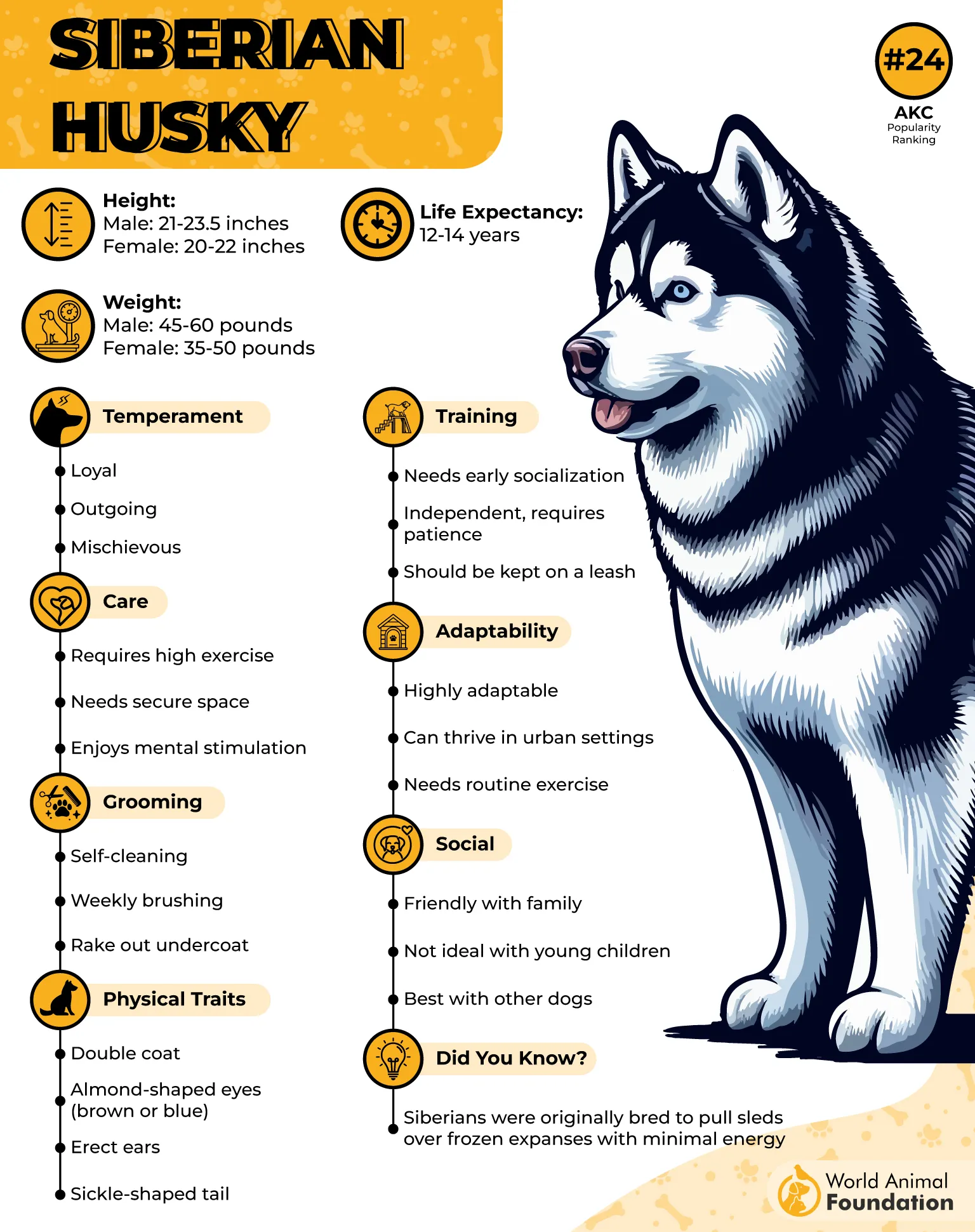
Their energy level could power a small village, and if they don’t get enough exercise or stimulation, they’ll find their own fun (usually involving your couch cushions, shoes, or walls).
WebMD says that a key trait to be aware of is their very high prey drive—they often chase after fast-moving animals like squirrels, birds, rats, and even cats, mistaking them for prey.
Escape artists: If there’s a way out, they’ll find it (and brag about it later).
Terrible recall: Off-leash time? Not a chance — unless you enjoy chasing.
Smart yet stubborn: Training can feel more like a debate than a lesson.
While their beauty and personality make them irresistible, these large dogs require constant exercise, patience, and strong leadership — things that can overwhelm new dog owners. Without enough mental and physical activity, they can quickly turn from majestic to mayhem.
Bottom line: The Siberian Husky is like that adventurous friend who’s always up for a challenge — but definitely not the roommate you want if you love peace, order, and clean floors. For the right, active owner, though, this snow-loving spirit is pure magic on four paws.
Conclusion
Certain dog breeds are better suited for experienced pet parents rather than first-time owners or novice dog owners. Breeds like the Australian Cattle Dog, Border Collie, German Shepherd Dog, Belgian Malinois, Pit Bull, and Airedale Terrier are strong dogs with high energy who need intense training, mental and physical stimulation, and regular exercise. Without proper guidance, they can develop destructive behaviors or struggle with socialization around other dogs and small animals.
Some breeds also require extensive grooming or are prone to health issues, making them less ideal for first-time pet parents. On the other hand, small, low-maintenance breeds like Yorkshire Terriers may be an ideal dog for novice owners.
Choosing the right dog means understanding a breed’s exercise needs, temperament, and care requirements. First-time dog owners should focus on breeds for first-time owners that are properly socialized, adaptable to other animals, and manageable in daily life to ensure a happy, healthy relationship for both new owners and their furry friends.


